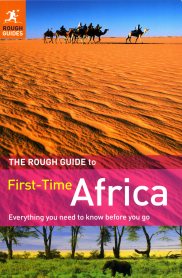Poor Algeria. The second biggest country in Africa after Sudan was a much abused French colony for 132 years, its tangled relationship with France bearing many similarities to Ireland’s with Britain.
The last eight years of French rule were dominated by a bloody liberation war. After eventual independence, almost three decades of socialist rule by Algiers were followed by the first democratic elections, in 1991, which gave a popular mandate to the Islamic Salvation Front (FIS). The Algiers government annulled the elections and banned the FIS, and eleven years of civil war and terrorist massacres ensued, with the identity of the perpetrators frequently unclear – government or even foreign agents provocateurs were sometimes suspected, and the army often did little to defend threatened villages.
By 2002, the violence had diminished. Since then, most attacks have been isolated incidents in northeast Algeria, and travellers have begun to return. However, kidnappings and banditry have spread into the Sahara, making the whole country’s security status at best murky and at worst dangerous.
Algeria from the late 1960s to the late 1980s was a wonderful country for offbeat, independent travellers. . .
Algiers, one of North Africa’s great metropolises, is a stately bowl of a city, swooping from residential heights. . .
Constantine, Algeria’s third city, perches on a rocky plateau in the northeast, its neighbourhoods connected by six dramatic bridges across the Oued Rhumel canyon. . .
(continued on p.226)
Since January 2011, there have been frequent pro-democracy demonstrations in Algiers, some of them violent.
Links we like
Algeria.com Comprehensive travel and visitor information.
Algérie Info Huge directory of websites and blogs.
Algerian National Tourist Office
Sahara Overland Excellent site with up-to-date, practical information, curated by one of the foremost authorities on travel in the Sahara, Chris Scott.
This page last edited 25 August 2011 © Richard Trillo and Emma Gregg

